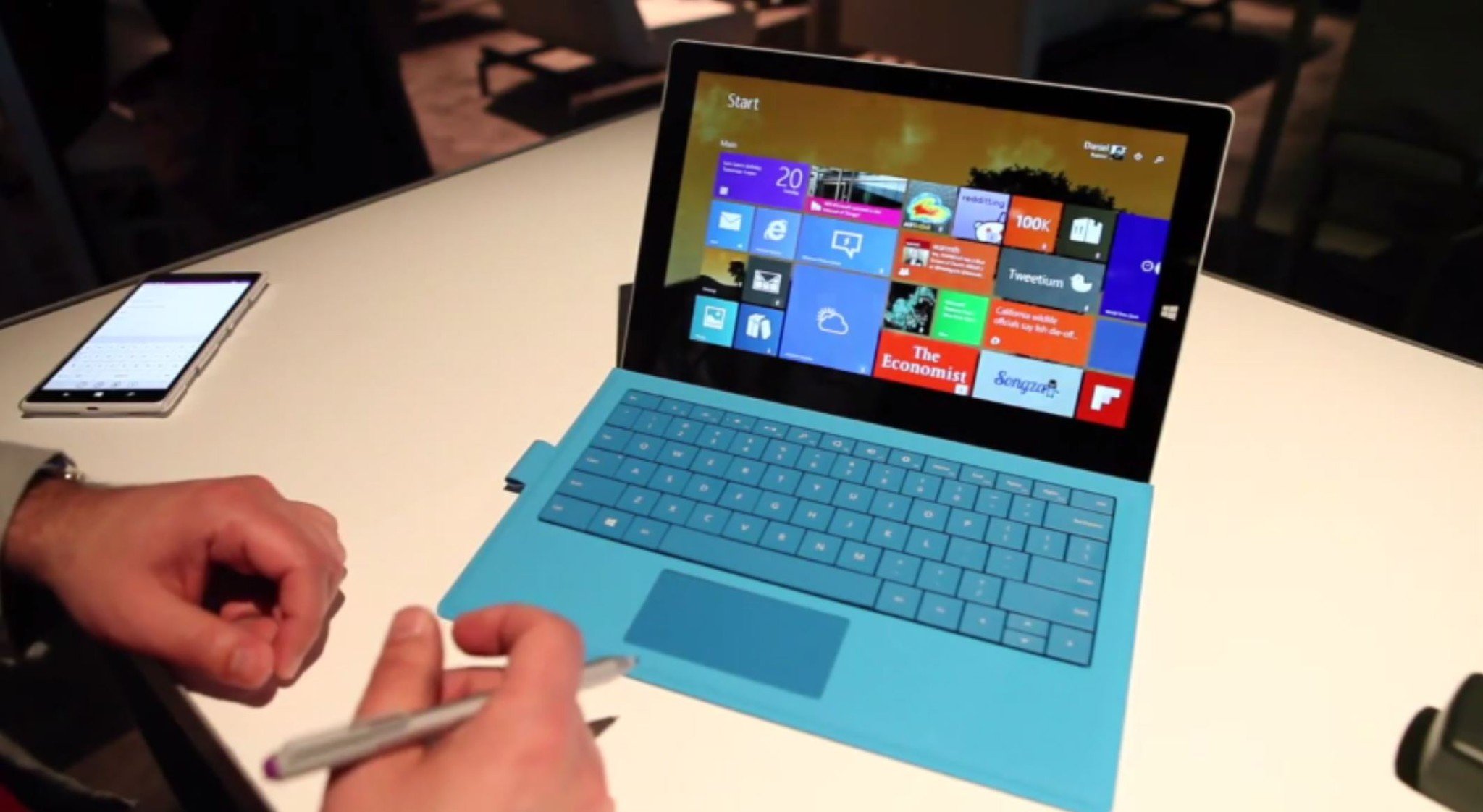Microsoft's Surface Pro 3 switches targets from iPad to MacBook

There's an old cliche that it takes Microsoft three tries to really nail a product. Like most cliches it's as true as it is untrue, but with the just announced Surface Pro 3 it really does look like Microsoft finally understands their product and its position in the mobile device spectrum. Because of that, it also looks like Microsoft is changing targets from the iPad to the MacBook Air. So what does that mean?
It can take a while to really understand a new product category. Arguably it took Apple until the iPad 2 and their "we believe" campaign to really "get" their own tablet.
Microsoft's early mistake was the split their focus and make the untenable claim that the original Surface was "no compromises". Everything in this world is a compromise. People know that. So the minute it didn't act perfectly as both a laptop and tablet, desktop and mobile, Microsoft became a liar — and that was almost instantaneously.
With the Surface 2 Microsoft shifted focus to mobile and went after the iPad trying to show the features they offered that the iPad lacked. However, people who wanted iPads expressly did not want those "missing features", including and especially desktop-style Windows. Windows on a tablet wasn't a feature, it was a liability.
Worse, Microsoft heavily promoted the Surface on TV shows in a way that made it look ridiculous as a tablet. Hey, Hawaii Five-0, a suspect is getting away on foot! Wait, let me take my Surface out, put the keyboard down on the hood of the car, open the kickstand, snap in the screen, and then— Crap! Suspect got away!
With the Surface Pro 3, however, Microsoft seems to have learned a lot of lessons. Most importantly they've learned that, when you're making a device that sits between the tablet and the laptop, you're better off targeting the laptop. The Surface has a better chance of establishing itself as the next generation laptop than the next generation tablet because Apple's already taken that space and there's no much air left in it. Laptops are still wide open.
In that regard the Surface Pro 3 has a lot going for it, including its convertible nature which might appeal to people who occasionally want a tablet — adjusted now to an iPad-like 4:3 aspect ration albeit at a beefy 12-inch size — but need a keyboard handy. The stylus and digitizer — no longer Wacom but still pressure sensitive — will appeal to artists and drafters and sketchers.
iMore offers spot-on advice and guidance from our team of experts, with decades of Apple device experience to lean on. Learn more with iMore!
That leaves only one major gap for the Surface when it comes to being a laptop: the inability to run OS X. Not everyone needs or likes Apple's desk top operating system, but no one should underestimate how important it has been in moving even incredibly well designed Mac hardware. OS X is good. (And it can be a triple threat, running UNIX and Windows-via-Bootcamp as well.)
That won't be a deal-breaker to anyone already ensconced in the Windows world, though. To anyone who might have been planning to buy a Windows Ultrabook or laptop. Even if all the Surface Pro 3 does is help Microsoft take a bite out of the slowing PC market — much as both the iPad and MacBook Air have done for Apple — it could be doing a very important and necessary job for Microsoft.
It could be doing the same job some of us have theorized and iPad Pro could do for Apple. (Apple has tested and not liked touch-screens on MacBooks.)
Mobile is an incredibly young, incredibly mutable, incredibly exciting market. We're going to see wearables smaller than phones, phablets between phones and tablets, and devices like the Surface Pro 3 between tablets and laptops. In the car/truck world, we're going to see motorcycles and compacts, SUVs and minivans. We're going to see that mobile device spectrum filled out in every shade and hue before things settle down and shake out. That's what makes it so exciting.
Microsoft has amped things up with the Surface Pro 3. I can't wait to see what Apple's got planned next. How about you?

Rene Ritchie is one of the most respected Apple analysts in the business, reaching a combined audience of over 40 million readers a month. His YouTube channel, Vector, has over 90 thousand subscribers and 14 million views and his podcasts, including Debug, have been downloaded over 20 million times. He also regularly co-hosts MacBreak Weekly for the TWiT network and co-hosted CES Live! and Talk Mobile. Based in Montreal, Rene is a former director of product marketing, web developer, and graphic designer. He's authored several books and appeared on numerous television and radio segments to discuss Apple and the technology industry. When not working, he likes to cook, grapple, and spend time with his friends and family.
